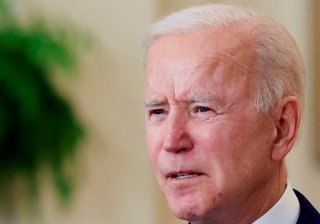Why More Stimulus Payments Were Missing from Biden’s Budget
The budget does not include another round of direct stimulus checks, indicating once again that another round of direct payments to most Americans is unlikely to take place.
Here's What You Need to Remember: Often, the presidential proposal is more of a wish list, per Politifact, one that kicks off a long process which is then kicked to Congress. While Biden is dealing with Democratic majorities in both houses of Congress, those majorities are slim, meaning the administration would likely have trouble getting everything it wants.
Biden budget does not include a new round of stimulus checksThe Biden Administration is preparing its first fiscal year budget, the New York Times reported Thursday, citing leaked documents.
The president’s proposed American Families Plan and American Jobs Plan, and the assumption that they will pass, are incorporated into the budget. However, the budget does not include another round of direct stimulus checks, indicating once again that another round of direct payments to most Americans is unlikely to take place.
“The levels of taxation and spending in Mr. Biden’s plans would expand the federal fiscal footprint to levels rarely seen in the postwar era, to fund investments that his administration says are crucial to keeping America competitive,” the Times analysis said.
“That includes money for roads, water pipes, broadband internet, electric vehicle charging stations and advanced manufacturing research. It also envisions funding for affordable child care, universal prekindergarten, a national paid leave program and a host of other initiatives. Spending on national defense would also grow, though it would decline as a share of the economy.”
The newspaper also noted that the Administration doesn’t appear worried about deficits or inflation fears, with interest rates low.
“Writ large, the budget proposal, which the White House is expected to formally lay out on Friday, is an unabashed call for a bigger role for government in the U.S. economy, bringing spending to a quarter of the nation’s annual output, larger than any level before the pandemic,” The Hill said of the reports of Biden’s budget plans. The Hill added that the budget will assume an increase in military spending.
In addition, The Washington Post reported that Biden has been criticized for dropping promises of student debt forgiveness from his likely budget proposal, among other campaign promises from 2020.
"The President’s budget will focus on advancing the historic legislative agenda he’s already put forward for this year," Rob Friedlander, spokesman for the White House budget office, told the newspaper. "The budget won’t propose other new initiatives but will put together the full picture of how these proposals would advance economic growth and shared prosperity while also putting our country on a sound fiscal course.”
The budget, the Times said, is a request to Congress, and probably won’t pass in identical form to what was proposed by the administration. Often, the presidential proposal is more of a wish list, per Politifact, one that kicks off a long process which is then kicked to Congress. While Biden is dealing with Democratic majorities in both houses of Congress, those majorities are slim, meaning the administration would likely have trouble getting everything it wants.
Stephen Silver, a technology writer for The National Interest, is a journalist, essayist and film critic, who is also a contributor to The Philadelphia Inquirer, Philly Voice, Philadelphia Weekly, the Jewish Telegraphic Agency, Living Life Fearless, Backstage magazine, Broad Street Review and Splice Today. The co-founder of the Philadelphia Film Critics Circle, Stephen lives in suburban Philadelphia with his wife and two sons. Follow him on Twitter at @StephenSilver. This article first appeared earlier this year.
Image: Reuters.

